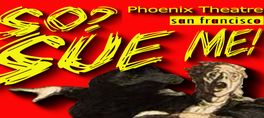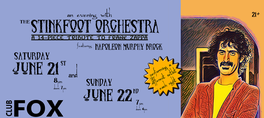Tue February 19, 2019
Presentation: Findings from research on Psilocybin at John Hopkins
SEE EVENT DETAILSThe featured speaker for February's Meeting is Dr.Frederick Barrett. He will provide up-to-date information about the acute and persisting effects of psilocybin in healthy and patient populations.
As the psychedelic renaissance blooms, many experimental laboratories and medical schools around the world are joining in to contribute to our knowledge of how psychedelic drugs affect the mind and brain. We will discuss recent findings from controlled laboratory studies with psilocybin, and review preliminary data from a number of studies at Johns Hopkins investigating the effects of psilocybin in healthy volunteers as well as those with mood disorders.
Biography:
Dr. Barrett earned his PhD in cognitive neuroscience at U.C. Davis, and completed a postdoctoral fellowship in behavioral pharmacology, studying the neuropsychopharmacology of psilocybin with Dr. Roland Griffiths at Johns Hopkins University. He uses music and pharmacological interventions, along with behavioral measures, computerized testing, and brain imaging techniques, to explore the neural basis of emotional functioning and altered states of consciousness. His current research focuses on the acute and long-term effects of classic and atypical hallucinogens on cognition, emotion, and brain function.
The featured speaker for February's Meeting is Dr.Frederick Barrett. He will provide up-to-date information about the acute and persisting effects of psilocybin in healthy and patient populations.
As the psychedelic renaissance blooms, many experimental laboratories and medical schools around the world are joining in to contribute to our knowledge of how psychedelic drugs affect the mind and brain. We will discuss recent findings from controlled laboratory studies with psilocybin, and review preliminary data from a number of studies at Johns Hopkins investigating the effects of psilocybin in healthy volunteers as well as those with mood disorders.
Biography:
Dr. Barrett earned his PhD in cognitive neuroscience at U.C. Davis, and completed a postdoctoral fellowship in behavioral pharmacology, studying the neuropsychopharmacology of psilocybin with Dr. Roland Griffiths at Johns Hopkins University. He uses music and pharmacological interventions, along with behavioral measures, computerized testing, and brain imaging techniques, to explore the neural basis of emotional functioning and altered states of consciousness. His current research focuses on the acute and long-term effects of classic and atypical hallucinogens on cognition, emotion, and brain function.
show less
Date/Times:
Randall Museum
124 Upcoming Events
199 Museum Way, San Francisco, CA 94114
The Best Events
Every Week in Your Inbox
From Our Sponsors
UPCOMING EVENTS
Great suggestion! We'll be in touch.
Event reviewed successfully.









